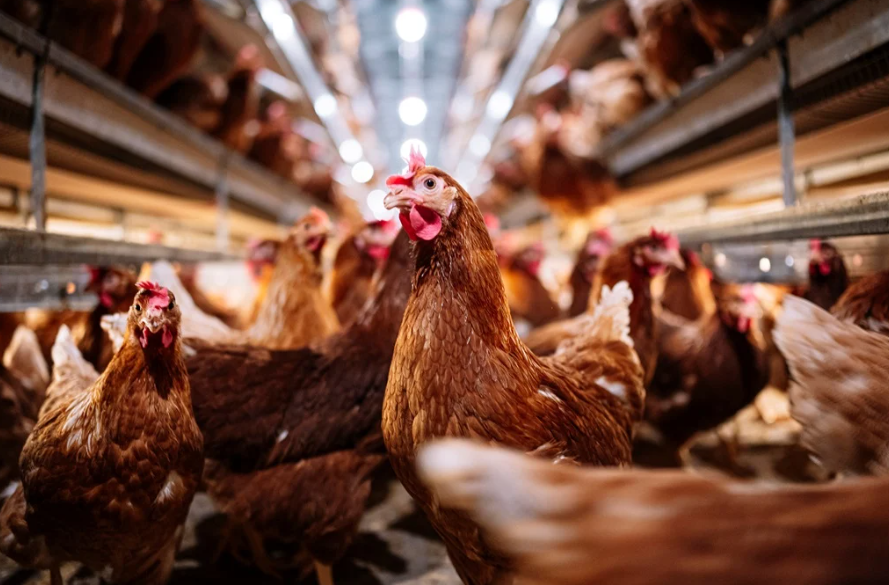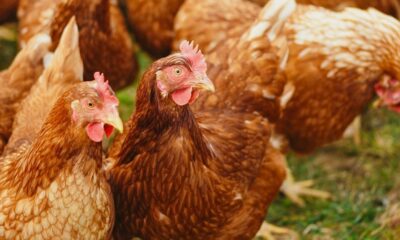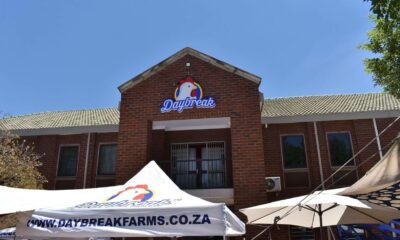Business
Daybreak Foods Faces Liquidation as Funding Bids Fail, Thousands of Jobs at Risk

South Africa’s food security and employment stability face a major blow as state-owned poultry producer Daybreak Foods teeters on the edge of liquidation. Despite urgent attempts by the Public Investment Corporation (PIC) to secure R500 million in rescue funding, the embattled company’s creditors are moving ahead with a final liquidation application.
Daybreak, which supplies roughly 7% of the nation’s poultry and employs more than 3,400 people, has failed to raise the capital necessary to avoid collapse. A letter obtained by the Sunday Times revealed the PIC’s last-ditch appeal to its clients—the Unemployment Insurance Fund (UIF) and the Compensation Fund (CF)—for financial lifelines that would “decisively alter” Daybreak’s fortunes. But by the close of business on Friday, approval had not been granted.
The company has already received R250 million from the Government Employees Pension Fund (GEPF), which owns a third of the business. Despite this, creditors—including Lakat Chicken, which obtained a provisional liquidation order—remain unconvinced that additional bailouts are justifiable.
Years of Poor Oversight Come to a Head
The PIC purchased Daybreak Foods in 2015 for R1.2 billion, with the intention of transforming the poultry sector, creating jobs, and supporting rural development. However, these ambitions have largely gone unmet.
Internal reports indicate that just two years after the acquisition, the company was “technically insolvent.” Despite this early red flag, the PIC continued to inject funds, even amid accusations of mismanagement, governance failures, and boardroom tensions.
A turnaround strategy was launched in 2023 under CEO Richard Manzini, supported by another R250 million investment. But with only R176 million disbursed by early 2025, it was too little, too late. Manzini and several executives resigned, citing ongoing interference and worsening conditions.
Unpaid Salaries, Dying Chickens, and Political Fallout
By April 2025, the crisis had worsened: workers went unpaid, feed suppliers suspended deliveries, and thousands of chickens died from starvation. The Congress of South African Trade Unions (Cosatu) and the Southern African Clothing and Textile Workers Union (Sactwu) have since called on the Department of Employment and Labour to intervene.
Meanwhile, opposition parties are demanding answers. The Democratic Alliance (DA) has lodged a formal request with the Financial Sector Conduct Authority (FSCA) to investigate the PIC’s handling of Daybreak. The party also filed a Promotion of Access to Information Act (PAIA) application to compel the National Treasury to disclose actions taken in line with recommendations from the Judicial Commission of Inquiry into the PIC—whose report flagged Daybreak’s acquisition as potentially irregular.
“We support public investments that uplift communities, protect workers, and grow the economy,” the DA said in a statement. “But we cannot stand by while public funds are wasted, employees are mistreated, and animals suffer.”
A Cautionary Tale in Public Investment
The looming liquidation of Daybreak Foods has become a flashpoint for broader questions about accountability in state-owned entities and the governance role of institutions like the PIC.
While the PIC says it is still engaging with stakeholders, the path forward remains unclear. If the funding fails to materialize in time, thousands of jobs—many in vulnerable rural communities—could be lost, and South Africa’s poultry supply chain could suffer a major disruption.
Daybreak’s downfall underscores the critical importance of due diligence, governance, and transparency in managing public investments. As creditors circle and confidence fades, urgent decisions now lie in the hands of government funders and regulators.
{Source: BusinessTech}
Follow Joburg ETC on Facebook, Twitter , TikTok and Instagram
For more News in Johannesburg, visit joburgetc.com



























